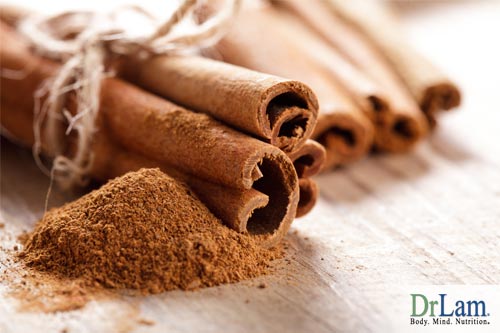
 Polycystic ovary syndrome, also known as PCOS, is a condition characterized by the growth of cysts on the ovaries. PCOS has a number of causes, and is linked with insulin resistance and metabolic imbalances, conditions that are also commonly associated with Adrenal Fatigue. PCOS fatigue and other symptoms typically begin as a girl hits puberty. The exact cause is not known, but is believed to be a combination of hormonal imbalances, particularly overproduction of estrogen or androgen, and genetics.
Polycystic ovary syndrome, also known as PCOS, is a condition characterized by the growth of cysts on the ovaries. PCOS has a number of causes, and is linked with insulin resistance and metabolic imbalances, conditions that are also commonly associated with Adrenal Fatigue. PCOS fatigue and other symptoms typically begin as a girl hits puberty. The exact cause is not known, but is believed to be a combination of hormonal imbalances, particularly overproduction of estrogen or androgen, and genetics.
Symptoms of PCOS fatigue include menstrual irregularities, including missing periods or very heavy periods, loss of head hair, excessive hair growth on other parts of the body, oily skin, breakouts, miscarriages, difficulty conceiving due to not ovulating, insulin resistance, excessive insulin production, depression, mood swings, darkening of the skin, skin tags, and pelvic pain.
Adrenal Fatigue occurs when the adrenal glands function inadequately and is typically the result of prolonged mental, emotional, or physical stress. Pathologically, the glands are intact. The most common symptoms of Adrenal Fatigue include difficulty waking up even after getting plenty of sleep, extreme fatigue, inability to cope with stressful situations, salt cravings, increased energy in the evenings, difficulty managing weight, and susceptibility to illness due to a weakened immune system.
In many cases, PCOS and Adrenal Fatigue combine in a vicious cycle that is difficult to overcome. To understand why, it is important to understand how stress affects various parts of the body.
Stress triggers the adrenal glands to release adrenaline (also called epinephrine), the hormone responsible for the fight, flight, or freeze reaction. Adrenaline causes certain systems, including the digestive and reproductive systems, to slow down, as digesting food and procreation are low priority when survival is threatened. Instead, energy is diverted to the muscles, heart, lungs, and brain.
Adrenaline also triggers the release of insulin, which helps glucose get into your cells, where it can be used for energy to deal with stressful situations. However, this mechanism is intended for short bursts of intense energy, the kind needed to run from a hungry tiger. Modern stresses are less intense, but more constant, yet your adrenal glands don’t know how to function at a lower level, they don’t have any type of dimmer switch, and can burn out quickly when constantly in an ‘on’ position.
This kind of prolonged stress along with a constant excess of adrenaline, leads to a whole cascade of hormonal disruptions as your adrenals are thrown off balance, including an overproduction of estrogen and male hormones like testosterone and androgen, and underproduction of progesterone and other hormones. As mentioned, these hormonal imbalances are a primary cause of PCOS.
The common response is to push through with coffee and other stimulants, while suppressing symptoms with medications and not addressing the underlying causes. This is a mistake and only serves to make both conditions worse and complicate recovery. Because the two problems are so closely linked, the best way to address either problem is to address both problems, and to help them holistically. For sufferers of both conditions, symptoms typically improve together, as hormone levels come into balance.
The keys to resolving PCOS and adrenal fatigue are rest, exercise, stress reduction, and supporting the body with good nutrition. The good news is treating PCOS and Adrenal Fatigue is simple.
 The exhaustion of Adrenal Fatigue is your body’s way of trying to tell you that you have been doing too much for too long. As cortisol levels wind down in your body, so should you start to prepare for sleep. Get to bed no later than 10 p.m. Cortisol levels dip around 11 p.m., with melatonin spiking around 1 a.m. Being in bed by 10 p.m. allows you to get deep, good quality sleep, which is crucial to healthy hormone and neurotransmitter levels. Taking daytime naps may be needed to help your body recover. Getting proper sleep is usually quite challenging for those with advanced Adrenal Fatigue. They can be wired at night and unable to go to sleep, or have frequent awakenings. Both can point to underlying metabolic or hormonal imbalance. Laboratory and neurotransmitter tests, as well as sleep studies, are usually normal. Restoring biological rhythm cannot be done only at bedtime with sleep aids or medications other than temporary relieve. Removal of underlying stressor and supporting adrenal function without the use of stimulatory or adaptogenic compounds should be considered as long-term solution.
The exhaustion of Adrenal Fatigue is your body’s way of trying to tell you that you have been doing too much for too long. As cortisol levels wind down in your body, so should you start to prepare for sleep. Get to bed no later than 10 p.m. Cortisol levels dip around 11 p.m., with melatonin spiking around 1 a.m. Being in bed by 10 p.m. allows you to get deep, good quality sleep, which is crucial to healthy hormone and neurotransmitter levels. Taking daytime naps may be needed to help your body recover. Getting proper sleep is usually quite challenging for those with advanced Adrenal Fatigue. They can be wired at night and unable to go to sleep, or have frequent awakenings. Both can point to underlying metabolic or hormonal imbalance. Laboratory and neurotransmitter tests, as well as sleep studies, are usually normal. Restoring biological rhythm cannot be done only at bedtime with sleep aids or medications other than temporary relieve. Removal of underlying stressor and supporting adrenal function without the use of stimulatory or adaptogenic compounds should be considered as long-term solution.
Exercise is tricky, because the wrong kinds of exercise at the wrong times can actually increase cortisol levels and cause more stress on your adrenal glands. Those with pre-existing adrenal weakness need to be very careful as excessive exercise is a common cause of adrenal crashes. However, exercise is also an important stress reduction strategy. Therefore, it is important to engage in the right kinds of exercise, at the right intensity, at the right times based on your fatigue and the state of your body. Generally, meditation, breathing exercises, and stretching are best when energy levels are low, while power yoga and aerobics are better for when energy levels are higher. In between, lower intensity aerobics and yoga are good options.
Make sure you exercise within your energy limits and not push beyond that. If you are not sure, then start gently and slowly increase incrementally, or work with an experienced health coach to guide you along.
Stress is at the core of both PCOS fatigue and Adrenal Fatigue, and stress reduction must be at the center of any recovery plan. Between family, career, and other activities, women have a strong tendency to want to take on too much. Some think this tendency dates back to our hunter/gatherer days, when women cared for the children, while tending to the home, and preparing the meals as well. Women still function in much the same way today, except with the added stress of having a career and other responsibilities along with much less support from the community and extended family. Slow down, reevaluate your priorities, and learn to say no. Turn to simplicity. You’ll feel better, and you’ll have more energy for the things that are really important.
Practicing gratitude, meditation, and mindfulness are some other ways to reduce stress and help balance your body.
 Nutritional support for Adrenal Fatigue and PCOS fatigue depends on getting good quality, whole foods at the times of day when they are most needed to meet energy requirements. A low histamine diet will help alleviate inflammation and stress on the body, adrenals, and ovaries. Reducing inflammation through supplementation of cinnamon, turmeric, and omega-3 fatty acids may help as well. Saw palmetto can help to reduce testosterone in the body and alleviate androgenic symptoms such as acne, and facial hair growth. Maintaining a healthy blood sugar level will also reduce insulin resistance in your body and the number of PCOS fatigue symptoms as well. Maitake mushrooms as well as chromium are good options. One of the most common recovery mistakes in Adrenal Fatigue is improper use of supplements. Not knowing the specific characteristics of each compound, many use a shotgun approach to increase energy. Stimulatory compounds including various herbs and glandular product may be tried. A short increase in energy is taken as success, while long term, they can lead to dependency, masking of underlying root problem, and trigger adrenal crashes. Hormone should not be taken unless as last resort. What works for one person may not work and in fact makes another person worse. The dosage must be individualized, titrating to fit the body at every step of the adrenal recovery process in order to have long last effect. Relapse and frequent adrenal crashes may be experienced otherwise.
Nutritional support for Adrenal Fatigue and PCOS fatigue depends on getting good quality, whole foods at the times of day when they are most needed to meet energy requirements. A low histamine diet will help alleviate inflammation and stress on the body, adrenals, and ovaries. Reducing inflammation through supplementation of cinnamon, turmeric, and omega-3 fatty acids may help as well. Saw palmetto can help to reduce testosterone in the body and alleviate androgenic symptoms such as acne, and facial hair growth. Maintaining a healthy blood sugar level will also reduce insulin resistance in your body and the number of PCOS fatigue symptoms as well. Maitake mushrooms as well as chromium are good options. One of the most common recovery mistakes in Adrenal Fatigue is improper use of supplements. Not knowing the specific characteristics of each compound, many use a shotgun approach to increase energy. Stimulatory compounds including various herbs and glandular product may be tried. A short increase in energy is taken as success, while long term, they can lead to dependency, masking of underlying root problem, and trigger adrenal crashes. Hormone should not be taken unless as last resort. What works for one person may not work and in fact makes another person worse. The dosage must be individualized, titrating to fit the body at every step of the adrenal recovery process in order to have long last effect. Relapse and frequent adrenal crashes may be experienced otherwise.
As your adrenals start to gain strength and recover, a proper balance of hormones in your body can start to be found. Once the hormones line up, PCOS symptoms typically start resolving themselves.
Fatigue is very common. It is a common symptom in PCOS as well. A gentle and natural approach of proper nutrition, exercise, and sleep can go a long way to helping balance your reproductive hormones. If you are experiencing fatigue and PCOS, give our office a call at +1-626-571-1234 for a free phone consultation and let us see if there is anything we can do to help you empower you along your health journey.
© Copyright 2016-2020 Michael Lam, M.D. All Rights Reserved.
When you have AFS, your ovarian hormones can easily become imbalanced. Estrogen dominance and PCOS may be a result of that imbalance. PCOS is associated with metabolic imbalances which can stress the adrenals.
